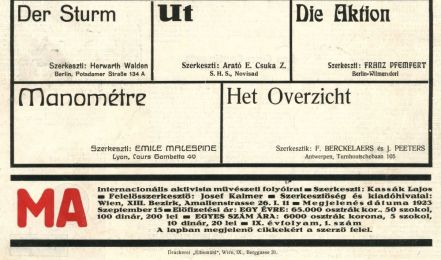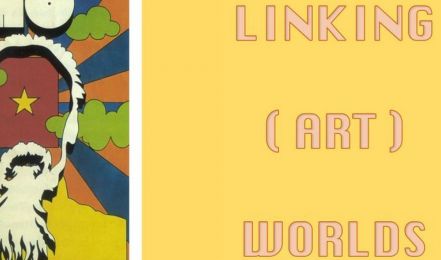‘workshop’
Zine-készítő workshop a Zabella Zine-nel
… of the Fanzine Anatomy collection dislplay, Artpool is organizing a free of charge zine-making workshop with the creators of Zabella Zine. The event aims to offer a more personal, creative approach to the themes presented in the collection display, i.e. music, criticism of the system, feminism. During the course of the workshop, participants will not only receive theoretical knowledge but also have the opportunity to create their own fanzine – thus they can learn about the methods and …
Mit, miért, hogyan? A művészettörténeti kutatás lehetőségei II.
Open call. The Central European Research Institute for the History of Art (KEMKI) is organising a workshop for art history and art theory students. The workshop aims to introduce young professionals to the methodology of art history and art theory research and the practical challenges of research-based work. Following the participants will jointly create an imaginary project (exhibition, event, research) based on their research interests.
Periodicals beyond Hierarchies
… 8– 9 September 2022) Application deadline: February 28, 2022 ESPRit Postgraduate Workshop on Periodical Studies In conjunction with the conference, a hybrid postgraduate workshop will be held on 7 September 2022. They are looking for applications from graduate students working on any topic with regard to periodicals from any historical period, geographical origin, and cultural context. The workshop is open to postgraduate students working in any discipline in the …
Művészeti világok összekapcsolása. Amerikai művészet és Kelet-Európa a hidegháborúban és ma
… project takes the form of five extended meetings of seminars, lectures, site visits and writing workshops. The seminars will be held in Prague, Budapest (Central European Research Institute for Art History - KEMKI), Berlin/Leipzig, New York and Giverny (France) between 2022 and 2024. KEMKI is the partner and venue for the Budapest seminar. The following three public events take place at KEMKI (1135 Budapest, Szabolcs street 33-35, OMRRK Campus, building C) and can be visited without …
Infrastructures of Trading and Transferring Art since 1900
… infrastructures behind the trade and transfer of artworks? On 26-28 June, KEMKI will organize a workshop on these often invisible infrastructures in cooperation with the University of Amsterdam and the Leuphana University (Germany). With more than 20 speakers from three continents, the three days of the workshop aim to reveal those institutions and networks and lay behind the commercial and non-commercial circulation of artworks. Keynote lectures will be held by Ana Magalhães (São Paulo) …




